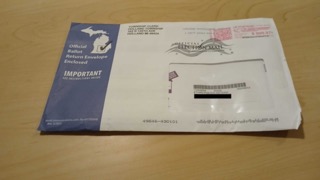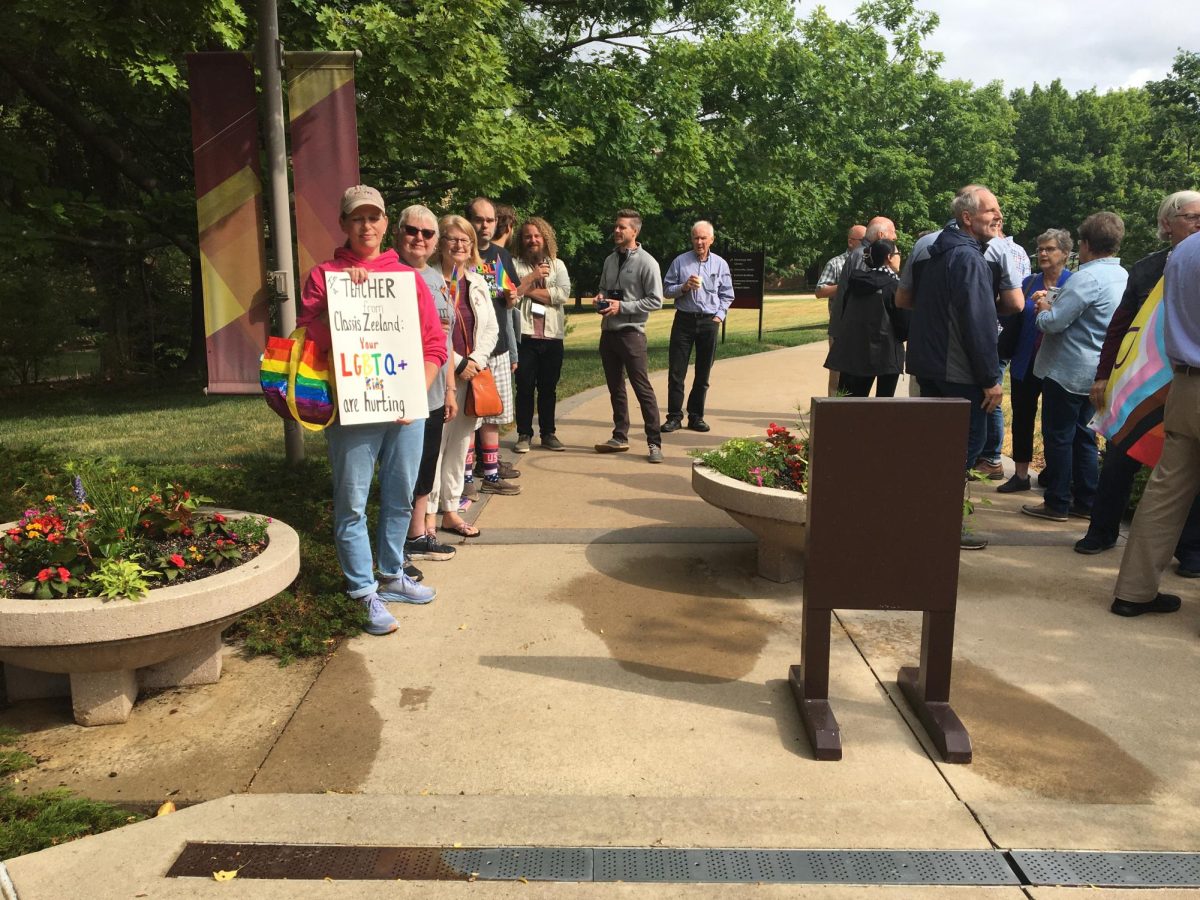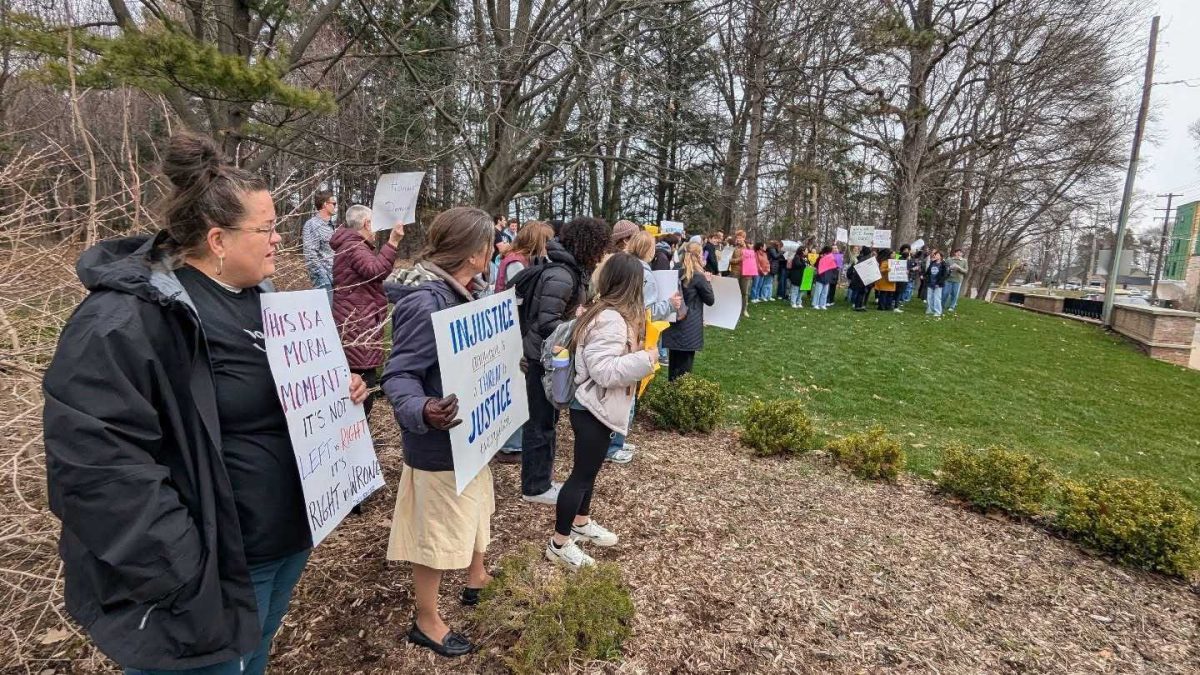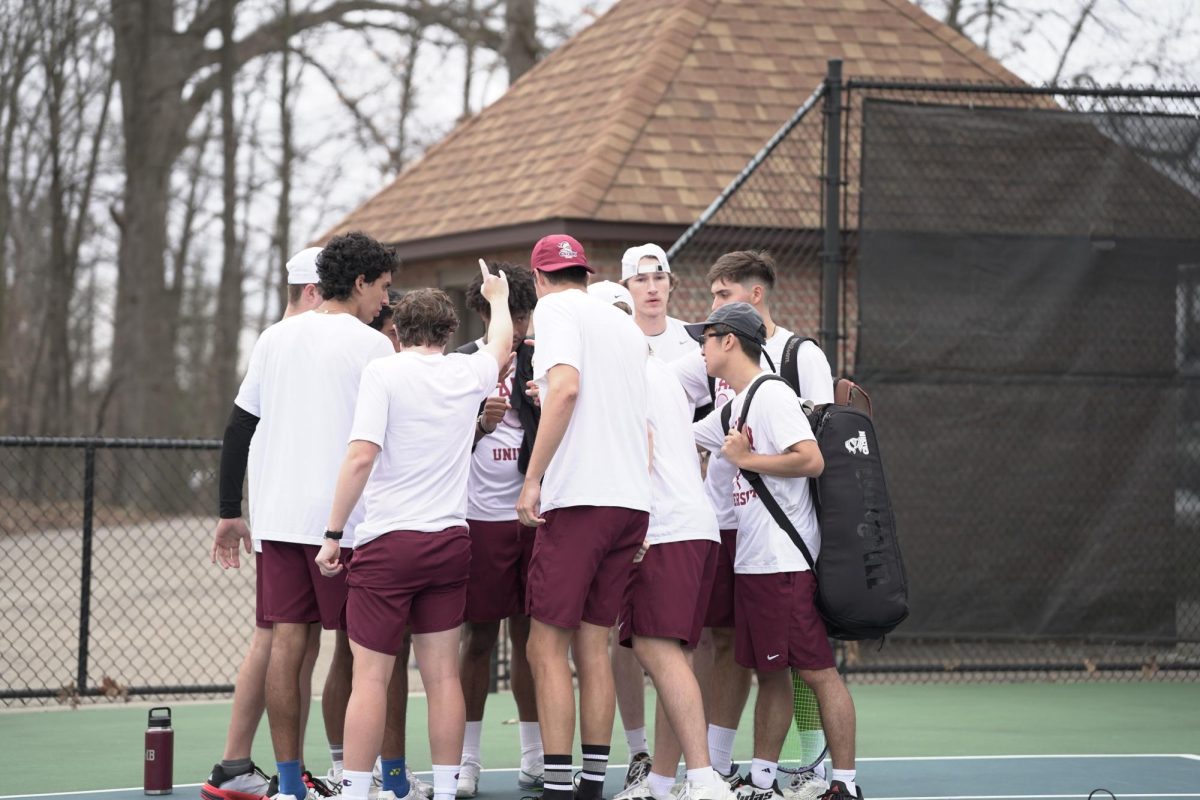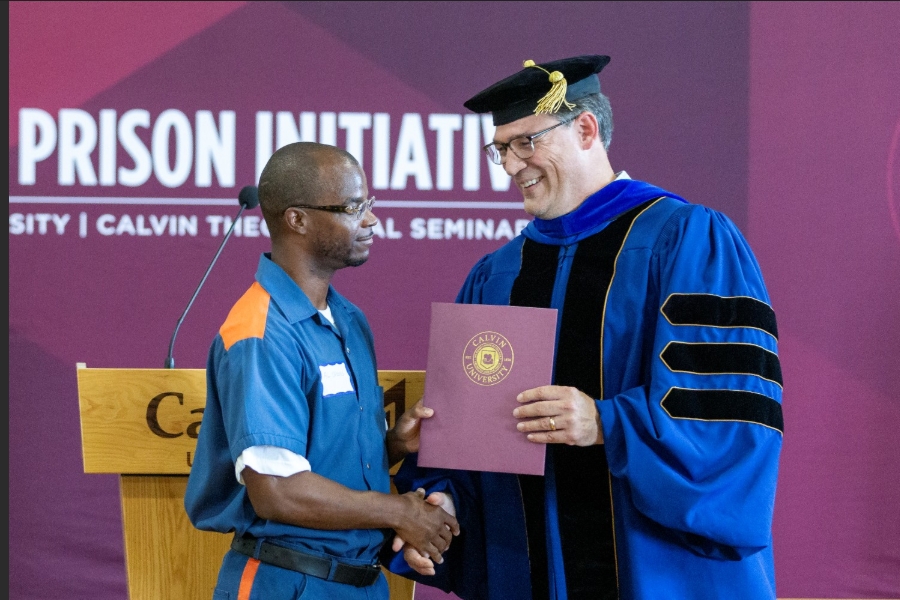For most of the Calvin students who are U.S. citizens, the United States election taking place on Nov. 5 will be the first time they’ve been eligible to cast a ballot for president. With increased options for when and where to cast a ballot, including a newly created early in-person voting period for the nine days before election day, Calvin students have more choices than ever about how to participate in our democracy.
Senior philosophy and English double major Heath Waidelich is a registered voter in his home state of Ohio. “I’m concerned a lot about the economy, and also democracy in general,” Waidelich said. “I think I’ve paid a solid amount of attention to the polls, and what each side says they’re going to do.” When he spoke to Chimes, Waidelich had already voted by mail-in ballot. On election day, Waidelich plans to “check the results now and then”, even though he’ll likely be too busy to attend or organize a watch party.
In the weeks leading up to the election, various groups across campus have been working to make it easier for students to register and vote. The Political Dialogue and Action Club (PDAC) has hosted several informational panel events in the lead-up to the election, and is co-sponsoring an election night watch party event starting at 8:30pm on Nov. 5.
“A watch party is a great way to let people know about what’s going on in a very casual way, where you can just kind of walk in and see what’s going on,” Miriam Crisman, a sophomore political science major who’s part of PDAC leadership, told Chimes. Crisman, a former poll worker who’s minoring in statistics, said friends often ask a variation of “Who do you think is going to win?”
The answer to that question remains deeply uncertain. Polls show the two main candidates, Kamala Harris and Donald Trump, are essentially tied in several states, including Michigan. Crisman occasionally checks the polls, but doesn’t put too much stock in what they show. “Yeah, the polls are really interesting to look at. I love looking at them, but at this point, they’re not going to tell you really who’s in the lead or winning, because it’s all within the margin of error,” Crisman said.
For out-of-state students, the elections pose additional challenges, as students who want to vote must either plan ahead to request and return an absentee ballot, or change their voters’ registration to their college address. To help with this challenge, the Service-Learning Center offered students rides to the city clerk’s office downtown from early October until Nov. 1.
The idea was implemented by Jack Klop, a junior studying civil and environmental engineering and the SLC’s operations coordinator. According to Klop, who is from California, he found that it was easiest to change his voter’s registration to vote in Michigan in-person. Because other students might also want to vote in their college state and not know how or have transportation, he “wanted to make that available for them to have transportation and also just a little bit of guidance on the process,” Klop said.
Students might have a few different reasons for choosing to vote in Michigan rather than in the state they grew up in. Klop cited the fact that Michigan is a key swing state as a motivating factor, and also said that “it kind of helps build a sense of place and identity with the city that we live in by voting here.”
Kevin Gee, a junior from the Chicago area, plans to vote in Michigan, though Gee is registered to vote in both Illinois and Michigan. Gee was concerned about voting accessibility, and encouraged people to consider voting for third parties if they’re not comfortable with the Democratic or Republican platform. Gee called voting for a third-party candidate “a choice that needs to be made”, and said it’s “never going to be comfortable to do so.”
Not all students who could do so have plans to vote, however. Fiona Boerman, a junior from Zeeland, Michigan studying psychology and ministry leadership, told Chimes she doesn’t plan on registering to vote for this election. “I think a lot of people will pigeonhole one another based on their political beliefs, and I think that — especially in an election year — that becomes a lot more prevalent, and it’s just really sad,” Boerman said.
Boerman sees reasons why others could decide to vote for either candidate, but is choosing not to vote because “I don’t feel like I have the time to put in all of the research” to make a sufficiently informed choice.
For members of the student body who aren’t U.S. citizens, the most hotly debated issues sometimes feel irrelevant. “For me, as a person, I don’t feel like the election would have any genuine impact,” Jeremy Kenji, a freshman from Nairobi, Kenya, said. “But if we’re talking about how my country would react, then it’s about intercultural relationships and how different governments would handle issues like communication or resource management.”
Kenji said a concern for many Kenyans he knows is how either candidate would handle trade relationships between Kenya and American companies. “The US is a major high-income country — which influences middle-income or lower-income countries,” Kenji said. “So as much as I know it won’t affect me as an individual, it does have a major impact as to those with some connections or some commerce ties to Kenya.”
PDAC and the political science department will co-host an election night watch party with live commentary from Doug Koopman, professor emeritus of political science, from 8:30-11pm on Nov. 5.




